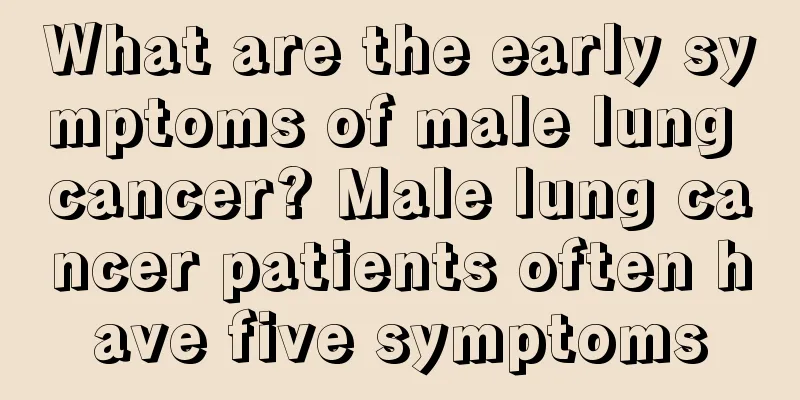What is the cure rate of ovarian tumors

|
Ovarian cancer is one of the most common gynecological cancers. Early detection usually leads to a higher cure rate. However, since most ovarian tumors have no obvious symptoms in the early stages, when most women find out that they have ovarian tumors, they have already spread and are in the late stages. Therefore, the mortality rate of ovarian cancer accounts for a relatively high proportion of gynecological tumors. So what is the cure rate of ovarian cancer? Let's find out together. Treatment of ovarian cancer: 1. Treatment principles The treatment plan for ovarian malignant tumors varies depending on the pathological type, and surgical treatment combined with chemotherapy and other comprehensive treatments are often used. 2. Surgical treatment During surgery, detailed exploration should be performed first, including cytological examination of peritoneal washing fluid or peritoneal effusion, palpation of the diaphragm, pelvic and abdominal organs, pelvic lymph nodes, and retroperitoneal lymph nodes, in order to accurately stage the tumor. The surgical methods for early-stage patients are divided into comprehensive staging surgery and fertility-preserving staging surgery. The scope of comprehensive staging surgery includes bilateral adnexa, uterus, omentum resection and pelvic and retroperitoneal lymph node dissection. For advanced patients with extensive pelvic implantation and metastasis, it is recommended to perform tumor cell reduction surgery as much as possible. 3. Chemotherapy Since ovarian malignancies, especially epithelial cancers, spread very early, most cases cannot be cleared during surgery, and the effect and application of radiotherapy are also very limited. Therefore, systemic chemotherapy is an important auxiliary treatment method. Especially for malignant germ cell tumors, standardized chemotherapy can significantly improve the survival rate of patients. For some advanced patients, the tumor can be reduced after chemotherapy, creating favorable conditions for satisfactory tumor reduction during surgery. 4. Radiation therapy The radiosensitivity of ovarian malignancies varies greatly. Ovarian endodermal sinus tumors, immature teratomas, and embryonal carcinomas are the least sensitive, ovarian epithelial carcinomas and granulosa cell carcinomas are moderately sensitive, and dysgerminomas are the most sensitive. Radiotherapy after surgery can usually control ovarian malignancies. However, since malignant germ cell tumors such as dysgerminomas are mostly diagnosed in adolescents and are well-treated by chemotherapy, and the side effects of abdominal and pelvic radiotherapy are significant, radiotherapy has rarely been used for ovarian malignancies. What is the cure rate of ovarian cancer? Experts explain that, generally speaking, if ovarian cancer is treated promptly in the early stage, the five-year survival rate can be as high as 50% or more; the survival period of ovarian cancer in the late stage is relatively short, but it also depends on the specific situation and is closely related to whether metastasis occurs. Generally, if ovarian cancer metastasizes, the survival rate will be much lower. |
<<: Can ovarian tumors be cured?
>>: Can children with ovarian tumors be cured?
Recommend
Middle and late stages of breast cancer
Advanced stage of breast cancer 1. Breast cancer ...
Does 8 chemotherapy sessions after breast cancer surgery mean the condition is serious?
Does 8 chemotherapy sessions after breast cancer ...
How to improve memory
Memory is very important and precious to us human...
How long after giving birth will it take to not get pregnant?
After giving birth, a woman must take care of her...
Looking at the early symptoms of skin cancer from squamous cell
As a common and dangerous tumor disease, the symp...
How much does cervical cancer treatment cost
Cervical cancer, when people hear these words, th...
What shoes to wear with a trench coat
Many people pay great attention to their outfits,...
What are the methods for regulating the kidneys
Nowadays, life is stressful and the pace of life ...
What are the early symptoms of cervical cancer
Early symptoms of cervical cancer may include abn...
Benefits of wearing a beeswax pendant
Beeswax is a kind of fossil. It took millions of ...
How long to take mycoplasma minocycline
Mycoplasma infection is a very common disease in ...
What are the methods to nourish the kidney and activate blood circulation
Maybe many of us don’t know much about the method...
Lemon for dandruff removal
Lemon is a fruit that many people like to eat. Le...
Does breast cancer require radiotherapy after breast-conserving surgery?
Is radiotherapy required after breast-conserving ...
Diagnosis of cholestatic liver disease
Cholestatic liver disease is a disease that affec...









